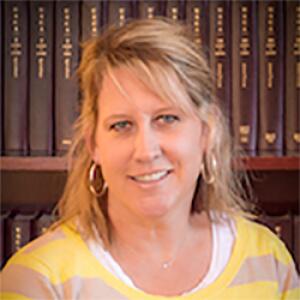Lessons I Learned When A Friend Died
There is no good time to bring up the subject of death and dying. There is no happy way to discuss such a sad topic.
And yet we have to talk about it – and plan for it – because doing so may spare our loved ones unnecessary time, money and grief.
I learned this over the past year, as I’ve served as Administrator of the estate of an old friend who passed away unexpectedly this summer.
He was 53 years old. We were not especially close any more, but he had been an important part of our lives for many years. His will was old, and my name was still listed. After much thought and prayer, I accepted the role of Administrator.
I suppose this is lesson number one – expect the unexpected. After all, serving as estate Administrator is really not something you expect to do for a peer or friend, especially at our age.
Lesson two – just because I work at a law firm and am familiar with estate planning and administration didn’t mean I didn't still have much to learn. There was lots of on-the-job training.
Here are some practical pointers worth sharing.
- Make sure you communicate with your family if you want to be buried or cremated (or an organ donor, etc). That is a hard decision for a family to make in the heat of the moment if you have no idea what your loved one’s wishes are. Cost should be a factor in this decision. Are you leaving your family enough money to have a funeral?
- Create a “when I die” memo and make sure your spouse/significant other/child/parent/somebody knows where it is located. In this memo you should mention (again) your wishes regarding your physical body and a service (I personally want it to be a par-tay!). You should list where your will is located, and other important documents. (One dear friend, who shall remain nameless, has a will but did not know where it was located when I asked her.) If the will is in a safe, share the combination! Also list all bank accounts, stocks/bonds, insurance policies and other financial info. Don’t make your family have to guess about this stuff. Or potentially miss something important.
- Generally speaking, have your bills and personal paperwork filed and in order. Everything dumped in a box is not in order.
- Make sure your estate planning documents are up to date! I cannot stress this enough. People die, friendships fade, laws change, children/grandchildren are born. If you don’t have a will, get one. Don’t assume anything. People WILL fight about money.
- Lastly, get rid of all your crap. Keeping a bunch of stuff in your attic or garage or shed for your family to have to sort through is really not a nice legacy to leave behind. It is heart wrenching to have to throw away someone else’s stuff. And time-consuming and costly and exhausting. We estimated that it took us about 200 hours to clean out the house, garage and shed.
Writing this was sort of therapeutic for me. I hope it makes you think. And then don’t just think, take action.
About the Author

Angie Elliott
Angie Elliott, CLA, NCCP is a Paralegal/Office Manager employed at Crabtree, Carpenter & Connolly, PLLC in Durham. She has been involved with various paralegal organizations over the course of her twenty-two year career. Angie holds a Bachelor of Science in Administration of Criminal Justice from the University of North Carolina at Chapel Hill and completed the Meredith College Legal Assistants Program.
Read More by Angie >
